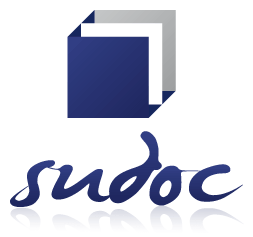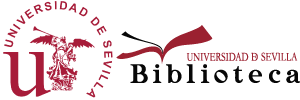Variabilidad intuicional y racionalismo modal naturalista: alcances y límites del escepticimo experimental
Intuitional Variability and Naturalist Modal Rationalism: Scopes and Limits of Experimental Skepticism
Resumen
El rol de una intuición racional es objeto de un intenso debate actualmente. Particularmente, se discute qué rol epistémico cumple, si cumple alguno. Recientemente, Machery (2017) ha propuesto un escepticismo modal respecto a la validez de las intuiciones en el ámbito filosófico, restringiendo con esto los alcances de la disciplina filosófica en general. Así, la propuesta de la filosofía experimental negativa no solo descartaría la validez de las intuiciones en el ámbito filosófico, sino que a través de este debate cuestionaría la naturaleza de la filosofía, así como su objeto de estudio. Es por tanto una discusión metafilosófica. En este escrito propongo una respuesta anti escéptica al rol de las intuiciones racionales, a la vez que abordo los principales alcances del cuestionado método de casos. Concluyo que si bien una intuición no justifica ni evidencia alguna creencia o conocimiento, cumple un rol propedéutico relevante, el que permite sostener una posición racionalista naturalista empíricamente informada.
Descargas
Citas
MACHERY, Edouard. Philosophy within its proper bounds. OUP Oxford, 2017.
FISCHER, Bob, y LEON, Felipe. Modal epistemology after rationalism. Springer, 2017, p. 1.
WEINBERG, Jonathan. “Humans as instruments or, the inevitability of experimental philosophy” en Modal epistemology after rationalism. Springer, 2017, pp. 171 – 187.
OSBECK, Lisa y HELD, Barbara. Rational intuition. Cambridge Univ. Press: Cambridge, 2014, p. 6.
MACHERY, Edouard. Philosophy within its proper bounds. OUP Oxford, 2017, p. 23.
PUST, Joel. “Intuition”. (E. N. Zalta, Ed.) The Standford Encyclopedia of Philosophy, 2017 https://plato.stanford.edu/entries/intuition/
GONZÁLEZ, Rodrigo. “Descartes: Las intuiciones modales y la inteligencia artificial clásica.” Alpha (32), 2011, p. 182.
MACHERY, Edouard. Philosophy within its proper bounds. OUP Oxford, 2017, p. 27.
MACHERY, Edouard. “The illusion of expertise”. En Experimental Philosophy, Rationalism, and Naturalism: Rethinking Philosophical Method, 2015, pp. 188-203.
HUNG, Woei. “Theory to reality: A few issues in implementing problem-based learning.” Educational Technology Research and Development, 59(4), 2011, pp. 529–552.
https://aeon.co/ideas/sedimentation-the-existentialist-challenge-to-stereotypes
MIRANDA, Rafael. “Bootstrapping y justificación a priori”. Discusiones Filosóficas Vol. 15, Nº 25, 2014, pp. 83 – 94.
https://elpais.com/cultura/2018/12/17/babelia/1545063946_645737.html?rel=mas
BALMACEDA HOYOS, Gustavo. “El delito de estafa en la jurisprudencia chilena”. Revista de derecho , 24(1), 2011, pp. 59-85.
BALMACEDA HOYOS, Gustavo. “El delito de estafa en la jurisprudencia chilena”. Revista de derecho , 24(1), 2011, p. 59.
BALMACEDA HOYOS, Gustavo. “El delito de estafa en la jurisprudencia chilena”. Revista de derecho , 24(1), 2011, p. 60.
DEUTSCH, Max. The Myth of the Intuitive: Experimental Philosophy and Philosophical Method. The MIT Press. Cambridge, Ed. 2015, p. ix.
FRANKFURT, Harry. “Alternate Possibilities and Moral Responsibility,” Journal of Philosophy, 66, , 1969, pp. 835–836.
MIRANDA, Rafael. “Sobre el rol propedéutico de las intuiciones desde una perspectiva racionalista naturalista”. Cinta de Moebio. Revista de Epistemología de Ciencias Sociales, N° 66, 2019, pp. 347 – 365.
KRIPKE, Saul. Naming and necessity. Harvard University Press. 1980, p. 54.
TAHKO, Thuomas. Empirically-Informed Modal Rationalism. En Modal Epistemology After Rationalism. Studies in Epistemology, Logic, Methodology. Springer. 2017 , p. 33.
MACHERY, Edouard. Philosophy within its proper bounds. OUP Oxford, 2017, p. 9.
COKELY, Edward y FELTZ, Adam.”Expert Intuition”. En L. M. (eds.), Rational Intuition: Philosophical Roots, Scientific Investigations. Cambridge University Press. 2014, p. 227.
NADO, Jennifer y JOHNSON, Michael “Moderate Intuitionism: A Metasemantic Account”. En BOOTH, A.R. y ROWBOTTOM, D. (eds.), Intuitions. Oxford University Press. 2014, p. 70
THOMAS, Gary. “A Typology for the Case Study in Social Science Following a Review of Definition, Discourse, and Structure”. Qualitative Inquiry, 17(6), 2011, p. 513.
FISCHER, Bob, y LEON, Felipe. Modal epistemology after rationalism. Springer, 2017, p. 3.
TAHKO, Thuomas. Empirically-Informed Modal Rationalism. En Modal Epistemology After Rationalism. Studies in Epistemology, Logic, Methodology. Springer. 2017.
TAHKO, Thuomas. “A priori and a posteriori: A bootstrapping relationship”. Metaphysica vol. 12 Nº 2, Springer. 2011, pp. 151 – 164.
TAHKO, Thuomas. Empirically-Informed Modal Rationalism. En Modal Epistemology After Rationalism. Studies in Epistemology, Logic, Methodology. Springer. 2017, p.33.
SCHINDLER, Samuel, DROZDZOWICZ, Anna, y BROCKER, Karen. Linguistic Intuitions: Evidence and Method. Oxford University Press. 2020.
DEUTSCH, Max. The Myth of the Intuitive: Experimental Philosophy and Philosophical Method. The MIT Press. Cambridge, Ed. 2015, p. x.
DEUTSCH, Max. The Myth of the Intuitive: Experimental Philosophy and Philosophical Method. The MIT Press. Cambridge, Ed. 2015, pp. x – xi.
MIRANDA, Rafael. “Intuición, Filosofía Experimental y Racionalismo Modal.”. Revista Cogency – Journal of Reasoning and Argumentation Vol. 10, N° 1, 2018, pp. 53 – 78.
SCHAFFER, Michael. “‘Filling in’, thought experiments and Intuitions”. Episteme, 14(2), 2017, pp. 255-262.
DAVIDSON, Donald. Inquiries into Truth and Interpretation. Oxford: Clarendon Press. 1984.
SEARLE, John. “Minds, Brains and Programs”. Behavioral and Brain Sciences, 3 (3), 1980, pp. 417 - 418.
FISCHER, Eugen y COLLINS, John. Experimental Philosophy, Rationalism, and Naturalism: Rethinking Philosophical Method. New York: Routledge. 2015, p. 10.
https://www.newyorker.com/magazine/2017/03/27/daniel-dennetts-science-of-the-soul
ROLLWAGE, Max, DOLANB, Raymond y FLEMING, Stephen. Metacognitive Failure as a Feature of Those Holding Radical Beliefs. Current Biology. 28. 2018, pp. 4014-4021.e8. 10.1016/j.cub.2018.10.053.
THOMAS, G. “A Typology for the Case Study in Social Science Following a Review of Definition, Discourse, and Structure”. Qualitative Inquiry, 17(6), 2011, p. 515.































